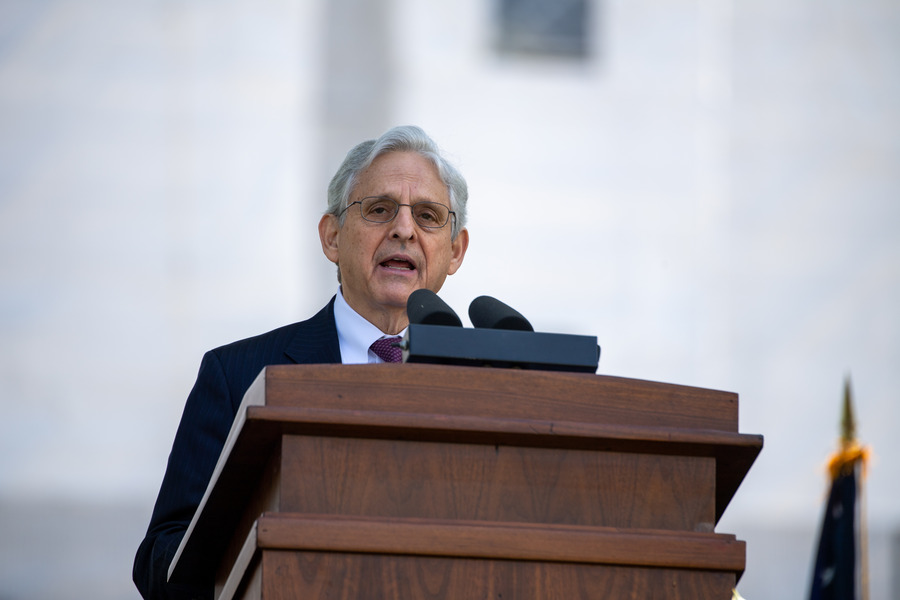Confiscating Passports: Is this a Good Way to Stop Citizens from Joining Jihadists in Syria and Iraq?
Thousands of westerners, including at least 100 Americans and more than 500 Britons, are known to have joined ISIS or the Al Nusra Front in Syria and Iraq.
Published by The Lawfare Institute
in Cooperation With

Thousands of westerners, including at least 100 Americans and more than 500 Britons, are known to have joined ISIS or the Al Nusra Front in Syria and Iraq. In the United States and the United Kingdom small numbers may have already come back, and some of these may have nefarious plots in mind. An undisclosed number of Americans fighting with terror groups are said to have returned to the United States and four British jihadis who swore allegiance to ISIS were arrested in London, thwarting a terror attack on the streets of London.
In recent weeks, reports (here and here, for example) have indicated that some of the traveling would-be jihadists have become disillusioned, and want to return home. Despite this, more Westerners continue to leave their homes to join the jihadists. In September and early October, the media was full of reports of the growing trend of women being recruited to ISIS or al-Shabaab, both from the United States and United Kingdom. Now it appears that would-be jihadis are booking passages on cruise ships as a way of getting into Syria and Iraq without being stopped at airports in Turkey.
Once the would-be jihadists return home, those that are suspected of having committed terrorist offenses can be arrested and charged with various offenses. Those who cannot immediately be charged with any offense can be put on no-fly lists to prevent further travel overseas, and they can be placed under surveillance, with a view to arresting and prosecuting them if they take sufficient steps towards committing a terrorist offense.
But what can be done to prevent westerners from leaving their homes to join the extremists in the first instance? In the United States and the United Kingdom, several people have been arrested prior to departure, because law enforcers have a wide range of terror-related charges to choose from. In Europe many countries are scrambling to pass laws to stop would-be jihadists in their tracks. For example, in France, legislation is being debated that would block the travel of citizens suspected of being involved in terrorism, or of wanting to join terror groups abroad.
Two of the most controversial measures currently being widely contemplated in different countries are the stripping of citizenship and confiscation of passports.
British citizenship can be, and has been, stripped from persons having dual nationality or naturalized citizens who have not lost their original citizenship. Section 40 of the British Nationality Act 1981 (as amended) permits the deprivation of citizenship if the Secretary of State is satisfied that deprivation is conducive to the public good because the person has conducted him- or herself in a manner that is seriously prejudicial to the vital interests of the United Kingdom, or a British overseas territory. In May 2014 the Minister for Immigration and Security reported to the United Kingdom Parliament that since 2006, twenty-seven orders have been made for the deprivation of citizenship on national security grounds.
However, the legislation states that a deprivation order may not be made if it would make the person stateless. Furthermore, rendering a person stateless is contrary to international law. In cases in which British citizenship has been stripped from some persons, this has been permitted because those people were also citizens of other countries. A British national born in Vietnam and currently resident in the United Kingdom and whose extradition is being sought by the United States on grounds of alleged terrorist activities, is awaiting a decision by the U.K. Supreme Court regarding a challenge to a deprivation order. He argued that the deprivation order left him stateless.
In the United States, Senator Ted Cruz has authored a bill that would strip citizenship from Americans who joined ISIS. This bill, and any others of the same ilk are doomed to failure. In 1967 the Supreme Court held in Afroyim v. Rusk that “the Fourteenth Amendment was designed to, and does, protect every citizen of this Nation against a congressional forcible destruction of his citizenship, whatever his creed, color, or race.” So this holding gives a citizen a “constitutional right to remain a citizen in a free country unless he voluntarily relinquishes that citizenship.” However, in a small set of circumstances, including immigration fraud relating to the naturalization process, naturalized citizens can sometimes be denaturalized.
There is a step short of citizenship-stripping: Law enforcement authorities in many countries, including the United States, the United Kingdom, France, the Netherlands, Canada and Australia also confiscate passports. The temporary surrender of passports to law enforcement officials has long been a measure imposed as a condition of bail in criminal prosecutions. But now, passport confiscation is becoming a favored and effective weapon to stop would-be jihadists from traveling overseas.
It is necessary as a preliminary matter to consider the function of a passport, to assess how confiscation affects the passport holder. Apart from being a legal document that permits the holder to travel overseas, it is also a document that asserts the identity and citizenship of the holder. Furthermore, a distinction needs to be drawn between confiscating and revoking passports. The former is designed to be a temporary measure, involving the return of the passport at some point, but the latter involves the permanent removal of the wherewithal to travel, requiring the affected individual to reapply for a new travel document before he or she can travel overseas.
In 1981, in Haig v. Agee, the Supreme Court held that the President, by acting through the Secretary of State, has authority to revoke a passport on the ground that the holder's activities in foreign countries are causing or are likely to cause serious damage to the national security or foreign policy of the United States. Revoking a passport to curtail travel abroad to stop would-be jihadis from joining extremists is one thing, but if that revocation has an impact on the citizenship of the holder, that is a different matter. Revocation, if used, should simply disable the travel function of the passport holder.
In February 2014, the U.S. Embassy in Bahrain confiscated the passport of naturalized citizen Najer el-Dajani, and retained it for forty-seven days. In July 2014, a number of civil rights organizations issued a shadow report in connection with the United States’ compliance with the International Convention on the Elimination of All Forms of Racial Discrimination. This report documented that at least a dozen (maybe even as many as one hundred) U.S. naturalized citizens of Yemeni origin had their passports revoked at the U.S. Embassy in Sana’a in 2013, leaving them stranded in Yemen for some months. Some have since been given single entry travel documents to return to the United States, but on arrival that travel document has been confiscated and the citizens have remained in the United States without U.S. passports, hopefully with other documents confirming their identity and immigration status as naturalized citizens.
On November 13, 2014 the British Prime Minister announced two new passport-related measures that will be set out in a new counter-terrorism bill later this month. The first will subject would-be jihadists who have travelled overseas to fight with ISIS to a temporary ban on returning to the United Kingdom for two years, unless they agree to surrender themselves at the borderand consent to face trial, home detention, regular police monitoring and/or go on a deradicalization course. The ban will involve the cancellation of the traveler’s passport and placing him on a no-fly list for the duration of the ban. Critics suggest that this may make the travelers stateless, but a full evaluation requires reviewing the detail of the bill when it becomes available. The second proposed measure involves confiscation of passports inside the United Kingdom. If a senior police officer has reasonable suspicion that a person is traveling abroad to engage in terrorist-related activities, he may seize the passport for up to thirty days, with a review by a magistrate after fourteen days. An individual’s passport can be seized multiple times, although on the third occasion a magistrate must review the decision. The individual would also be placed on a no-fly list.
Although the British measures need to be evaluated further when the bill is published, procedural deficiencies may make passport confiscation and revocation susceptible to legal challenge on the grounds that these measures impinge on personal liberty and freedom of movement. In addition some critics have worried that confiscating or revoking passports could be a trigger for terrorist activity in the homeland. Notably, the two perpetrators of recent attacks in Canada had been prevented from traveling to Syria.
Many questions come to mind. Is the measure confiscation (temporary) or revocation (permanent)? Removing passports at the border presupposes that each person has been correctly identified as a would-be jihadist. But what does that mean? What evidence is currently, and should be, required to indicate that a person is a would-be jihadist, or intending to engage in terrorist-related activities? Is the evidence derived from items found in baggage, police surveillance, or can it be merely a tip-off from a member of the public? What sort of conduct would merit passport confiscation? Is any travel by such a person to any country immediately a reason to confiscate a passport? If the passenger is traveling to Turkey, is it fair to assume that he or she is likely to be going to Syria? If the passenger has a ticket to Germany, is it fair to assume that he or she is not going on to Syria? Who makes the judgment call? What level of proof is required? Is it a suspicion, a reasonable suspicion, a belief, proof? When and where are passports confiscated? How long will the confiscation last? What opportunities are there for people to challenge the decision to confiscate?
While countries are considering adding confiscation of passports to their array of counter-terrorism tools, they would do well to focus on establishing proper procedures. All of the above questions require serious consideration and must be addressed. A transparent and fair process must be established to legitimize and thereby strengthen the use of this potentially significant counter-terrorism weapon.
Diane Webber earned her doctorate at Georgetown University with a thesis that compared the laws of several countries dealing with preventive detention of terror suspects, and crafted a set of criteria as a basis for a new international legal framework. She is currently working on other national security law related projects.



.jpg?sfvrsn=1ec79bb0_5)
